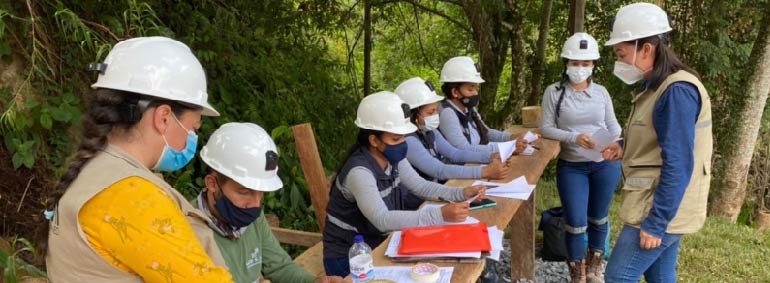
Together with the Geneva Centre for Security Sector Governance (DCAF), the Alliance for Responsible Mining (ARM) has carried out a multi-year project to analyze and address security and human rights challenges in the artisanal and small-scale mining (ASM) sector in Antioquia, Colombia.
First Practical Guidance on human rights and security in ASM

Following in-site research, consultations, and focus group interviews to better understand the security and human rights situation in which the ASM sector operates, ARM, DCAF and with the participation the GDIAM Antioquia Territory (Grupo de Diálogo sobre Minería en Colombia) developed a guidance tool for improved security and human rights risk management. The tool enables ASM to carry out heightened human rights due diligence regarding the security providers around their operations.
This is the first guidance specifically addressing security and human rights in ASM, drawing on ARM’s and DCAF’s respective experiences and strengths. The guidance also highlights the linkages between the OECD Due Diligence Guidance for Responsible Supply Chains of Minerals from Conflict-Affected and High-Risk Areas and the Voluntary Principles on Security and Human Rights (VPs).
Introductory video: how can ASM address security risks?
One of the great achievements of this project is the creation of the video How can small-scale miners address security and human rights risks? with recommendations to mitigate risks in the Artisanal and Small-scale Mining (ASM) sector, based on the CRAFT Code.
How to strengthen the security risks management in the Fairmined Standard?
Creation of recommendations to include the Voluntary Principles and other good practices on security and human rights in the revision process of the Fairmined Standard .
This project was supported by Switzerland and the United Kingdom, through DCAF’s Security and Human Rights Implementation Mechanism.

